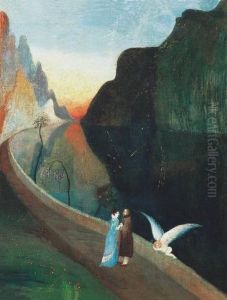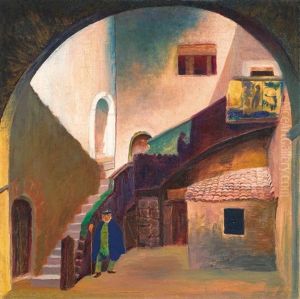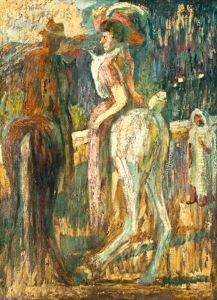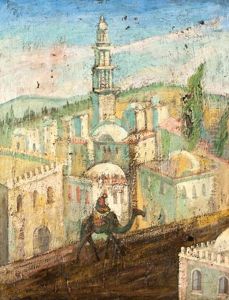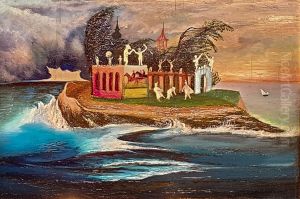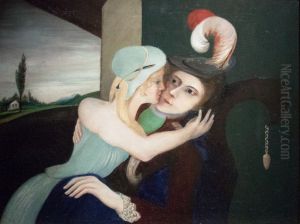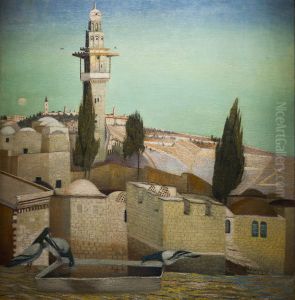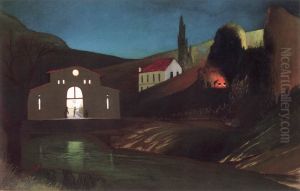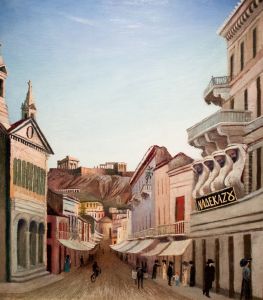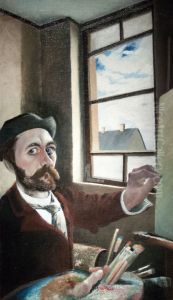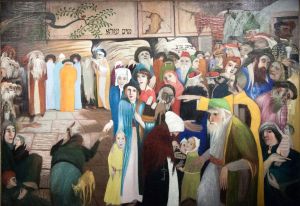Tivadar Csontvary Kosztka Paintings
Tivadar Csontváry Kosztka was a Hungarian painter, known for being a forerunner of expressionism and an exceptional figure in the history of Hungarian art. Born on July 5, 1853, in Sabinov, then part of the Austro-Hungarian Empire and now in Slovakia, Csontváry was not only an artist but also a pharmacist by profession. Despite his late start in the art world, his unique style and vision have left an indelible mark on the art world.
His career as an artist began at the age of 41 when a mystical experience led him to pursue painting, a calling he believed was divinely inspired. He was largely self-taught, having only briefly attended a couple of art schools. His lack of formal training, however, did not hinder his development into a remarkable painter with a distinctive style, characterized by bold colors, dramatic compositions, and a unique use of perspective. Csontváry's work often conveyed a sense of solitude and the grandeur of nature, which he believed was an expression of a cosmic order.
Despite his dedication, Csontváry struggled to gain recognition during his lifetime, and he financed his own exhibitions. His works were not widely appreciated until after his death, with much of his fame coming posthumously. His most productive period was between 1903 and 1909, during which he traveled extensively in Europe and the Middle East. The experiences from his travels significantly influenced his art, as seen in one of his most famous paintings, 'The Lonely Cedar' (1907), which reflects his fascination with the Orient.
Csontváry's output was relatively small, with about a hundred paintings to his name, but his work is considered to be of paramount importance in Hungarian art history. Some of his other renowned works include 'The Ruins of the Greek Theatre at Taormina' and 'The Baalbek'. He was a visionary and an eccentric, often misunderstood by his contemporaries, but today he is celebrated as an artist who broke the boundaries of traditional painting of his time.
Tivadar Csontváry Kosztka died on June 20, 1919, in Budapest, Hungary. His legacy endured and grew, leading to the establishment of the Csontváry Museum in Pécs, Hungary. The museum, dedicated to his life and art, helps to ensure that Csontváry remains a celebrated figure in the art world. His works continue to be exhibited in Hungary and abroad, securing his place as a significant artist in the narrative of modern art.
